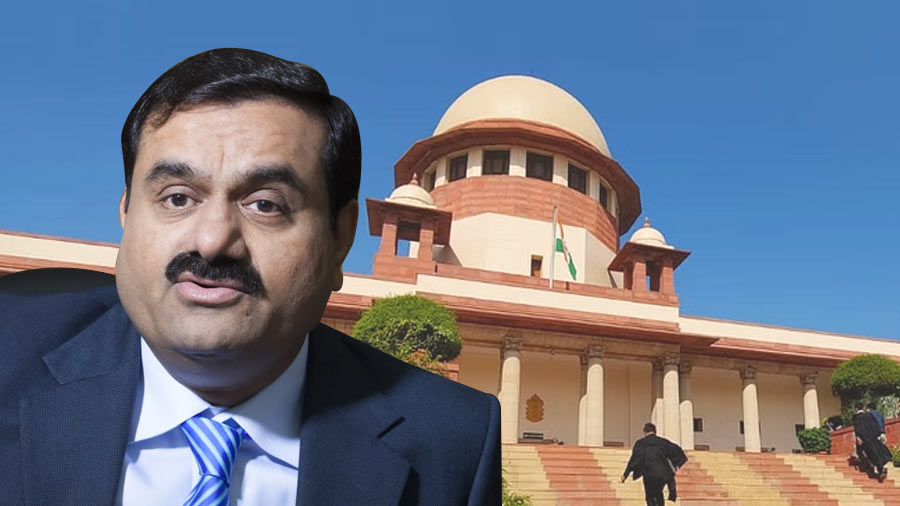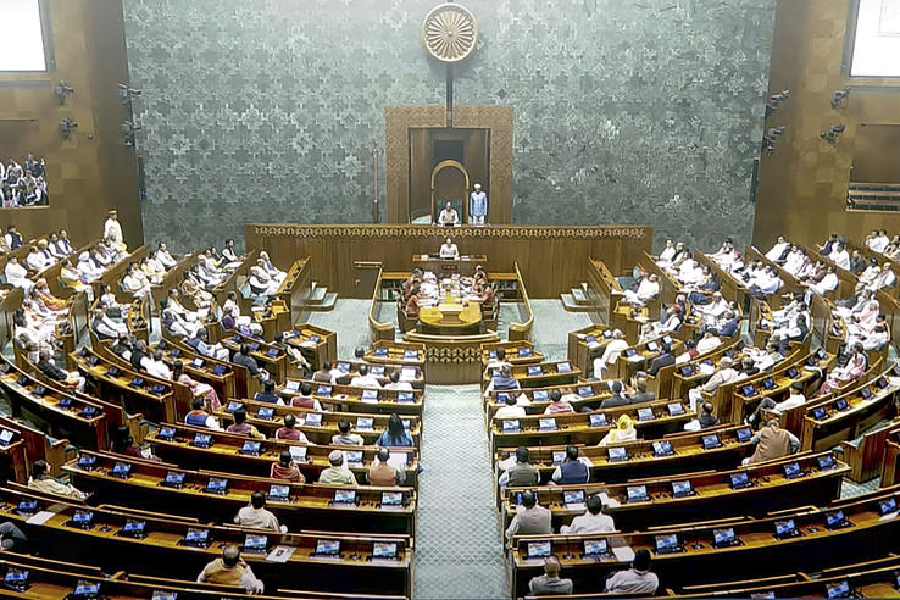The Supreme Court on Friday said the interests of Indian investors need to be protected against market volatility in the backdrop of the Adani stocks rout and asked the Centre to consider setting up a panel of domain experts headed by a former judge to look into strengthening the regulatory mechanisms.
It also sought the views of the Securities and Exchange Board of India (SEBI) and the Centre as to how to ensure putting a robust mechanism in place since the capital movement now is “seamless” in the country.
Noting that the stock market is not the place where only high value investors invest, the court said with the changing financial and tax regime the investments are being made by “the wide spectrum of middle class”. It noted that as per some reports the total loss suffered by Indian investors due to the recent Adani stocks rout was in the range of several lakh crores of rupees.
The top court, which was hearing PILs alleging exploitation of innocent investors and "artificial crashing" of the Adani Group's stock value, assured the officials of the SEBI that it was not "planning any witch hunt" and would tread with “very great caution” as its observations would affect the stock market which “goes largely by sentiments”.
“We have indicated to the Solicitor General (Tushar Mehta) the concerns with regard to ensuring that the regulatory mechanisms within the country are duly strengthened so as to ensure that Indian investors are protected against certain volatility, the kind of which has been witnessed in the recent two weeks.
“That in turn would require due assessment of existing regulatory framework, the relevant causal factors, need for strengthening the regulatory framework in the interest of the investors and the stable operations and development of the securities market,” the Chief Justice DY Chandrachud-led bench said.
On the issue of strengthening existing regulatory regime, the bench, also comprising justices PS Narasimha and JB Pardiwala, mooted an expert committee which can comprise experts from the securities areas, the international banking sector and a “wise guiding figure in the form of a former judge”.
“We have also suggested to the solicitor general, if they are willing to accede to forming a committee to see the overall situation. If the Union government is so inclined to accept the suggestion, the necessary submissions can be urged on the constitution of the committee to that end,” it said in the order.
The bench asked the top law officer to place a brief note on both factual and legal aspects to take the deliberations further on February 13, the next date of hearing.
One PIL filed by lawyer Vishal Tiwari sought a direction to the Centre to constitute a committee monitored by a retired apex court judge to inquire into the Hindenburg Research report which has made a slew of allegations against the business conglomerate led by industrialist Gautam Adani.
Another PIL filed by advocate M L Sharma sought prosecution of short-seller Nathan Anderson of the US-based Hindenburg Research and his associates in India and the US for allegedly exploiting innocent investors and the "artificial crashing" of the Adani Group's stock value in the market.
Adani Group stocks have taken a beating on the bourses after the Hindenburg Research made a litany of allegations, including fraudulent transactions and share-price manipulation, against the business conglomerate.
The Adani Group has dismissed the charges as lies, saying it complies with all laws and disclosure requirements.
At the outset, the bench said, “This is just an open dialogue. They have brought an issue before the court. The point which is really a matter of concern is this, how do we ensure the protection of Indian investors.” Referring to the practice of short-selling in the stock market and role of SEBI, it said, “please tell your (SEBI) officers that there is not like a witch hunt that we are planning.” As a result of short sale, the value of shares can get depressed depending upon the number of shares which are offered in the market, it said, adding when one stepped into the market to buy the shares, the purchasers then get the benefit of the difference.
It said when it happened on a small scale, then nobody was bothered.
“But the point is this if it happens on a large scale, then it concerns small investors... as per some reports, the total loss suffered by Indian investors goes in the range of several lakh crores of rupees." “You have fund inflow and outflow from India. How do we ensure in future that Indian investors are protected... Everybody is now in the market. Even a small lawyer is there in the market. But, they have no control,” it said, adding “What role do we envisage for SEBI? For instance, in a different context, you have circuit breakers.” The law officer said it was “a little premature” for him to answer immediately.
“The trigger point was the (Hindenburg) report, which is outside. This was beyond our territorial jurisdiction. There are regulations which deal with the concerns. We are also concerned," Solicitor General Tushar Mehta said, adding the market regulator was closely monitoring the situation.
The bench said it was not casting any doubt on SEBI or the regulatory agencies.
“You may get some inputs from the government and perhaps then you can take a call whether modification of our statutory provisions are required. Then again this is a matter for the government. Beyond a certain stage we cannot enter into the policy domain but we can at least use our own good office to put into place some mechanism to ensure that it does not happen in future." While suggesting setting up of a committee of domain experts, the bench said it was thinking aloud.
“We can give a very vital role to SEBI also. Because the SEBI can have also a threadbare analysis of powers which it has. We also need to think of strengthening SEBI so that it has better provisions to deal with in future. It is a new world... Today, India is not what it was in the 1990s,” it added.
The law officer said the SEBI was closely monitoring the situation.
“We clarify that the ...observations of this court are not intended to be nor shall be construed as any reflections on the discharge of the statutory function by SEBI or by any statutory authority,” the court said.
Except for the headline, this story has not been edited by The Telegraph Online staff and has been published from a syndicated feed.











